Table of Contents
What Is a Cardamom Substitute?
A cardamom substitute is a spice or ingredient that replicates cardamom's flavor profile in recipes when cardamom is unavailable. It maintains the dish's intended taste while providing similar aromatic qualities. Cardamom has a unique sweet, floral, and citrusy profile with warm undertones, and substitutes should mirror these characteristics as closely as possible for successful recipe adaptation.
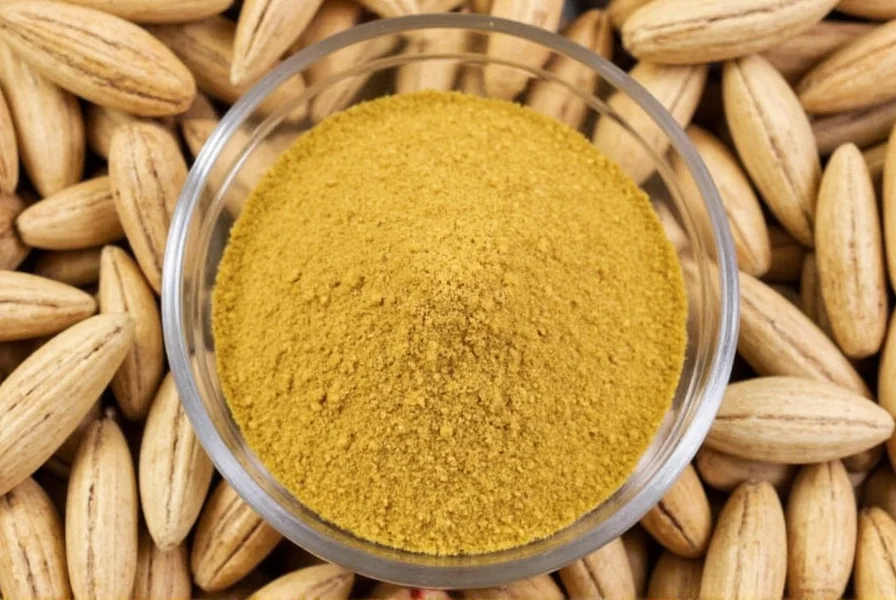
Why Use Cardamom Substitutes?
Common reasons to seek cardamom alternatives include:
- Cardamom is unavailable at local stores or too expensive
- Recipe adjustments for dietary restrictions or allergies
- Experimenting with new flavor combinations
- Need for immediate substitution during cooking
Knowing effective substitutes ensures you never compromise your culinary results.
Top 5 Cardamom Substitutes with Exact Measurements
Each substitute offers distinct flavor notes. Use these precise ratios for best results:
1. Cinnamon
Best for sweet applications like desserts and baked goods. Provides warmth but lacks cardamom's floral complexity.
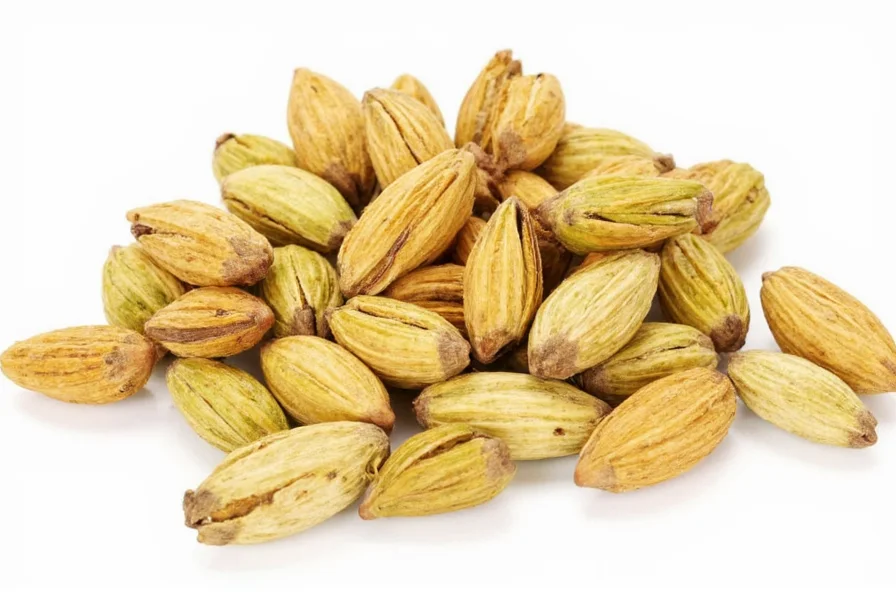
Measurement ratio: 1:0.5 (use half the amount of cinnamon compared to cardamom)
2. Nutmeg + Cinnamon Blend
Ideal for savory dishes and chai. Balances warmth and sweetness while mimicking cardamom's complexity.
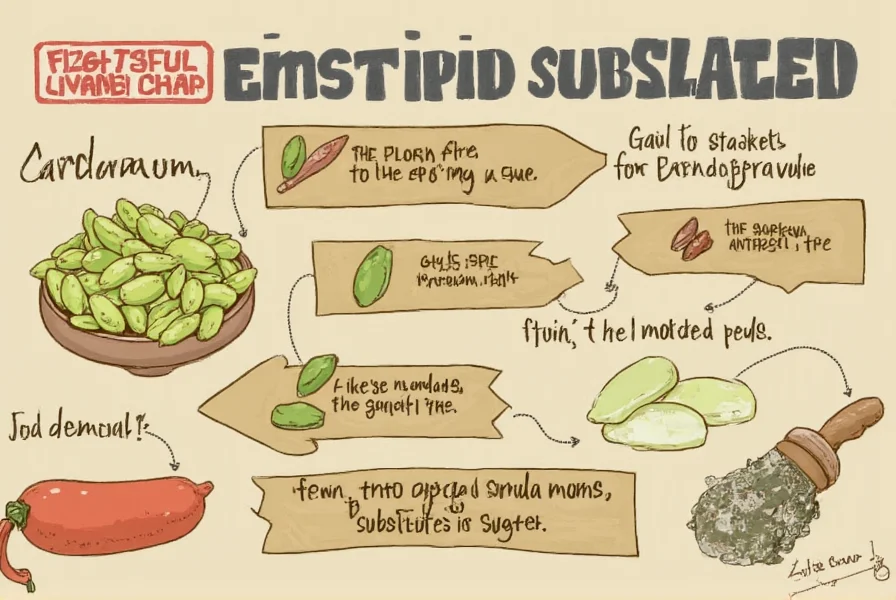
Measurement ratio: 1 tsp cardamom = ⅓ tsp nutmeg + ⅔ tsp cinnamon
3. Star Anise
Best for savory recipes like curries and braises. Offers licorice notes but stronger than cardamom.
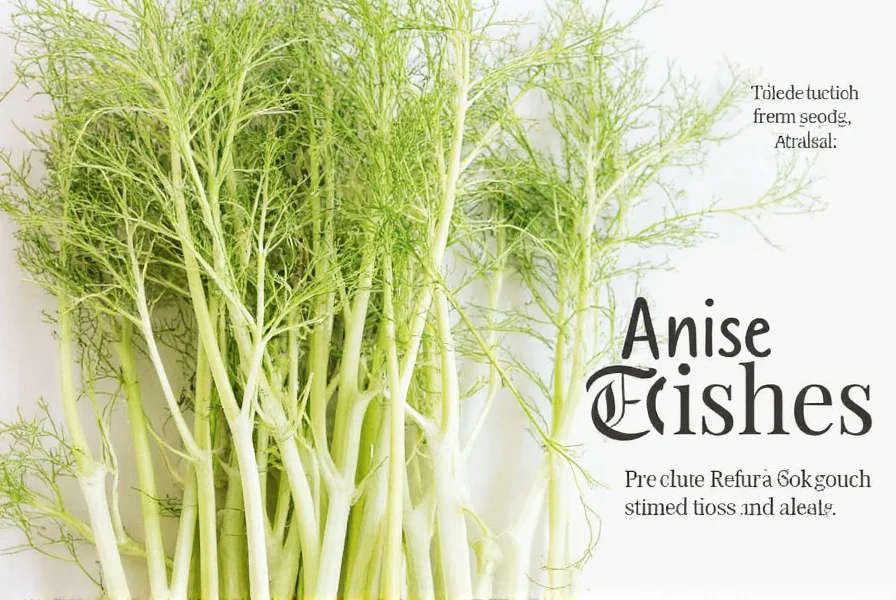
Measurement ratio: 1 tsp cardamom = ¼ tsp ground star anise (use sparingly)
4. Clove + Cinnamon Blend
Perfect for beverages like chai and mulled wine. Delivers robust spice with minimal licorice notes.
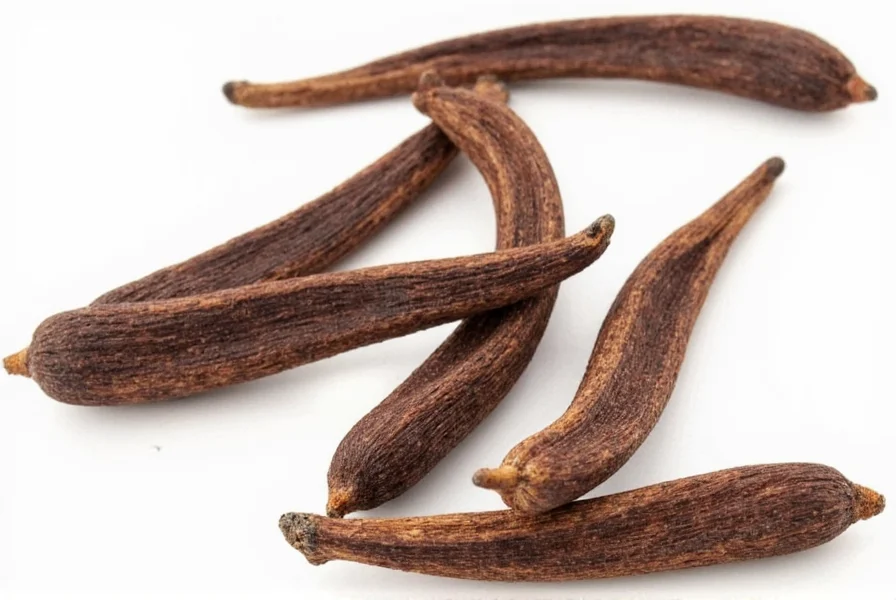
Measurement ratio: 1 tsp cardamom = ½ tsp cinnamon + ¼ tsp cloves
5. Allspice
Excellent for baking and spice blends. Closest single-spice alternative with warm, peppery notes.
Measurement ratio: 1:1 for baking, 1:0.75 for savory dishes
Practical Substitution Tips
- Start with 50% less: Strong substitutes like star anise or cloves should be added gradually
- Combine spices: Nutmeg + cinnamon creates the most authentic cardamom-like profile
- Toast whole spices before grinding to mellow harsh flavors
- Balance bitterness with a pinch of sugar or citrus zest when using strong substitutes
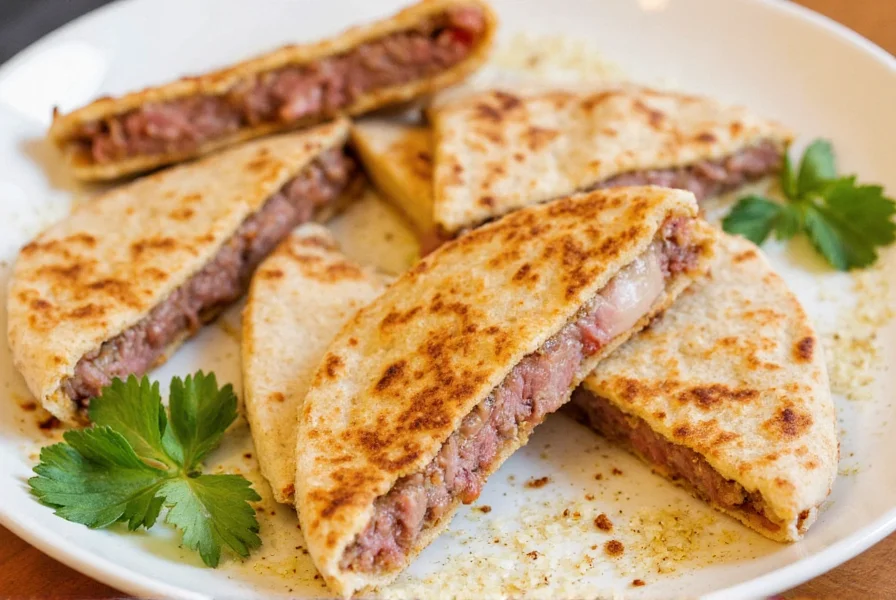
Buying Guide for Substitutes
Choose substitutes based on your recipe needs:
| Substitute | Best For | Flavor Profile | Where to Buy |
|---|---|---|---|
| Cinnamon | Desserts, baked goods, hot beverages | Warm, sweet, woody | Supermarkets, spice shops |
| Nutmeg + Cinnamon | Savory dishes, chai, sauces | Complex, balanced, aromatic | Most grocery stores |
| Star Anise | Asian cuisine, braises, stews | Intense licorice, slightly sweet | Asian markets, specialty stores |
| Clove | Spiced drinks, holiday baking | Strong, pungent, spicy-sweet | Supermarkets, bulk spice sections |
| Allspice | Baking, spice blends, marinades | Warm, peppery, reminiscent of cloves | Most grocery stores |
Frequently Asked Questions
What is the best single-spice substitute for cardamom?
Allspice provides the closest single-spice match for cardamom in baking. For savory dishes, cinnamon works best when used at 50% of the cardamom quantity. Avoid using nutmeg alone as it lacks cardamom's floral notes.
Can I replace cardamom with ginger?
No, ginger has a sharp, spicy heat unlike cardamom's sweet floral profile. For gingerbread recipes, use allspice instead. Ginger works only in specific savory dishes where cardamom's citrus notes are secondary.
How do I substitute cardamom pods with ground spices?
1 cardamom pod = ¼ tsp ground cardamom. For substitutes: 1 pod = ⅛ tsp nutmeg + ⅙ tsp cinnamon. Always adjust based on taste testing during cooking.
What works best in chai tea?
Use ½ tsp cinnamon + ¼ tsp cloves per cup of chai. This blend replicates cardamom's warmth without overpowering licorice notes. Add a pinch of black pepper for complexity.
Why does my substitute taste bitter?
Bitterness comes from overusing strong spices like cloves or star anise. Reduce quantities by 30-50%, add ¼ tsp honey, or balance with orange zest. Toasting whole spices before grinding prevents harsh flavors.
Conclusion
Understanding cardamom substitutes transforms recipe challenges into culinary opportunities. With precise measurement ratios and strategic spice combinations, you can maintain flavor integrity in any dish. Whether baking holiday treats or brewing chai tea, these alternatives ensure your recipes stay delicious even when cardamom is unavailable.










 浙公网安备
33010002000092号
浙公网安备
33010002000092号 浙B2-20120091-4
浙B2-20120091-4